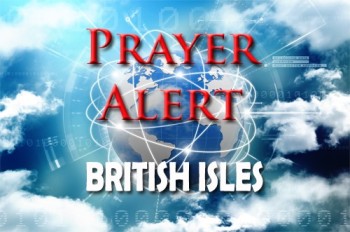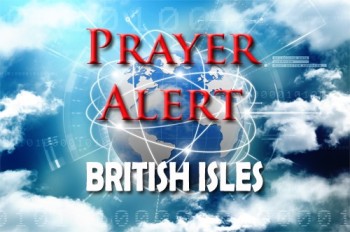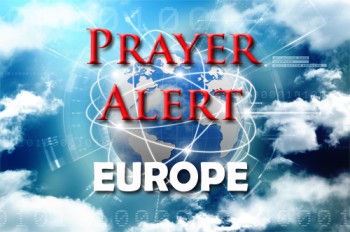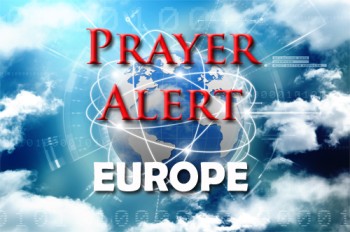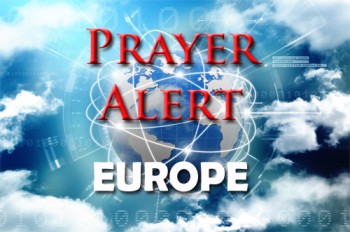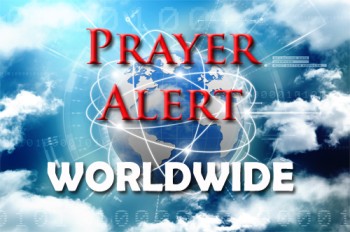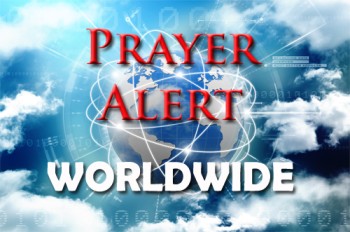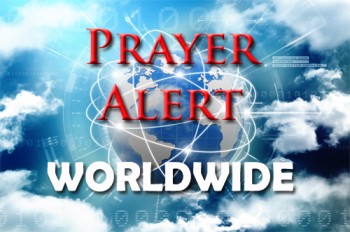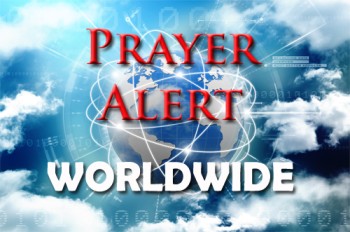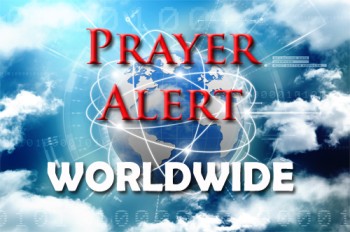
David Fletcher
David Fletcher is Prayer Alert’s Editor.
He is part of a voluntary team who research, proof-read and publish Prayer Alert each week.
If you would like to make a donation towards our running costs, please click here.
Cuts to foreign aid by Western governments could result in 369,000 additional child deaths from severe malnutrition annually, according to a study in Nature. The reduction in overseas development budgets by the UK, USA, and other major donors is expected to create an 'unprecedented crisis.' Britain's aid budget will drop by 40% (approximately £6 billion) by 2027 to prioritise defence spending, prompting the resignation of development minister Anneliese Dodds. The USA has dissolved USAID, which previously managed much of its $60 billion foreign aid. Other nations, including France, the Netherlands, and Belgium, have also cut foreign aid, by 37%, 30%, and 25% respectively. Emergency nutrition spending could fall by half ($290 million annually), leaving 2.3 million children without critical treatment for severe malnutrition. In Nigeria, USAid's withdrawal halted nutrition services for 5.6 million children. In Sudan, nearly 80% of emergency food kitchens have closed.
Senior faith leaders from the UK’s six major religions have united to urge the Government to adopt a bold child poverty strategy. In an open letter to Bridget Philipson and Liz Kendall, 35 faith leaders, including former Archbishop of Canterbury Rowan Williams and Bishop of Leicester Martyn Snow, called for transformative action. With 4.3 million children currently living in poverty and projections indicating another 400,000 could be affected by the end of the decade, they said that poverty reduction is a moral imperative for a compassionate society. The letter expressed hope that the forthcoming strategy could mark a turning point, encouraging partnerships across society to ensure every child has a fair start in life. It references the 'Paying the Price' report by Action for Children, advocating reforms in social security and housing to lift 1.2 million children out of poverty by 2030. Some saw scrapping the two-child benefit cap as a crucial step in this process.
Russia and Ukraine have reached separate agreements with the USA on a naval ceasefire in the Black Sea, following peace talks in Saudi Arabia. Though indirect, the negotiations resulted in a promise to halt attacks on energy infrastructure and reopen critical trade routes. Volodymyr Zelensky welcomed the move but said it was too early to gauge its effectiveness. The Kremlin, however, tied the ceasefire to the lifting of sanctions on its food and fertiliser sectors, demanding restored access to financial systems and agricultural trade tools. The USA acknowledged it would support restoring Russia’s global market access in these areas, prompting Zelensky to criticise the move as a concession. Ukraine warned that any expansion of Russian naval activity beyond agreed zones would violate the ceasefire and justify defensive action. It is also calling for increased US support and sanctions if Russia fails to honour its commitments. Even as the negotiators were meeting, a Russian missile hit a hospital, injuring dozens: see Breaking news: France and the UK are at the forefront of a united European message of support for Ukraine: see
Protests have rocked Turkey for more than a week after the arrest of Istanbul’s mayor Ekrem Imamoglu, a key opposition figure and potential rival to President Erdogan. He was detained on corruption charges, which he and his supporters claim are politically motivated. Over 1,400 people have been detained since the unrest began, including students, journalists, and lawyers. Rights groups and the UN have condemned the mass arrests and police violence. Despite government bans, thousands have continued to gather in Istanbul, chanting against the government and demanding early elections. The Republican People's Party (CHP) is calling for transparent trials and the release of detained officials. President Erdogan has denied any political interference, warning protesters they are leading the country into chaos. Journalists covering the protests have also been arrested, prompting international concern. While Imamoglu remains eligible to run for president unless convicted, his arrest has escalated tensions in an already polarised political climate.
Ireland’s political landscape is bracing for a showdown over Ceann Comhairle (Speaker) Verona Murphy, whose role is under fire amid a prolonged row over speaking rights in the Dáil. Since January, tensions have mounted, and now five main opposition parties have united to table a no-confidence motion, claiming bias and procedural failings. Murphy, a former haulier, responded defiantly, rejecting accusations of collusion and affirming her commitment to impartiality and parliamentary procedure. The government, led by Taoiseach Micheál Martin, is standing firmly behind her. Martin criticised the opposition - particularly Sinn Féin - for disruptive conduct and accused them of undermining democratic norms. Murphy is expected to survive the vote, but the battle has exposed deep divides, threatening to paralyse parliamentary function and leaving her position weakened, even if technically secure. Both sides are now entrenched, and further political drama appears inevitable in the days ahead.
The UN AIDS agency has warned of a potential global health crisis, with projections of 2,000 new HIV infections daily and up to 6.3 million AIDS-related deaths over the next four years, if US foreign aid remains frozen. The halt, ordered by Donald Trump under his ‘America First’ policy, has disrupted critical healthcare services. Although the State Department has said that life-saving programmes will continue, UNAIDS reports that many clinics have already closed and thousands of health workers have been laid off. There are fears that this sudden collapse in funding will reverse decades of progress in combating HIV/AIDS, especially in vulnerable regions. In 2023 alone, there were 600,000 AIDS-related deaths globally. UNAIDS, which relies on the US for 35% of its core funding, says unless aid resumes or is replaced by another source, the world could face a devastating resurgence of the epidemic, echoing the crises seen in the 1990s and early 2000s. Trump’s team members say they have saved US taxpayers tens of billions of dollars by cancelling contracts, firing workers and rooting out fraud and waste, but they have offered little evidence to support that assertion.
Donald Trump’s administration is facing huge criticism after a newspaper editor was mistakenly added to a Signal group chat discussing sensitive military plans, including potential US strikes against Yemen’s Houthi rebels. Despite official claims that no classified material was shared, Democrats and some Republicans expressed deep concern. Defence secretary Pete Hegseth allegedly disclosed target locations, weapon specifics, and timing - details typically considered classified. National security adviser Michael Waltz took full responsibility, calling the incident ‘embarrassing’; Trump defended his team and suggested they would stop using Signal. The Senate intelligence committee plans to audit the chat, and lawmakers from both parties demanded further investigation and potential resignations. Signal’s auto-deletion feature may have violated federal record-keeping laws, intensifying scrutiny. Senators criticised CIA director John Ratcliffe for dodging questions, and legal experts warned that such platforms are not appropriate for sensitive communications.
The constitutional court has overturned the impeachment of South Korean prime minister Han Duck-soo, reinstating him as acting president amid ongoing political upheaval. Han was removed from office after president Yoon Suk Yeol declared martial law late last year, suspending civilian legal processes and triggering a national crisis. After Yoon's suspension by lawmakers on 14 December, Han took over presidential duties - only to be impeached himself less than two weeks later for allegedly undermining the constitution. The opposition Democratic Party accused him of aiding Yoon’s martial law plan and refusing to appoint constitutional court justices or pass a bill investigating First Lady Kim Keon-hee. However, the court found no evidence to support these accusations; only one of eight judges supported the impeachment. Han welcomed the ruling, calling it ‘wise’. The nation now awaits the court’s decision on whether Yoon will be impeached.
In the Gambia, many people enjoy taba, a powdered tobacco product, by smoking or snuffing or chewing it. However, it is increasingly being mixed with potent chemicals and used intravaginally by women seeking sexual enhancement or relief from health issues. Though it is not illegal, health professionals warn of serious risks, including infections, tissue damage, and even cancer. Stories of extreme pain, bleeding, and near-death experiences are surfacing, yet some users and sellers deny its dangers. While some women claim medicinal benefits, many suffer silently due to stigma and fear. The ministry of health and women's rights groups are actively campaigning to raise awareness, with public warnings from medical professionals and videos from government officials. Doctors say taba’s harmful effects could include long-term reproductive damage and increased risk of sexually transmitted infections.
Mark Carney has called a snap federal election for 28 April, aiming to secure a strong mandate amid rising tensions with Donald Trump. A political newcomer and former banker, Carney was sworn in just weeks ago after succeeding Justin Trudeau, who stepped down following internal party strife. The election sets the stage for a fierce contest with Conservative leader Pierre Poilievre, a populist who once led comfortably in the polls. The central issue is who can best defend Canada against Trump’s aggressive rhetoric and trade threats, including proposed tariffs and talk of annexation. Carney accused Trump of seeking to undermine Canadian sovereignty and vowed to build a more secure, self-reliant nation. Poilievre, meanwhile, blamed Liberal policies for Canada’s current vulnerability and called for a nationalist shift in governance. The 37-day campaign is poised to reshape the nation’s future at a critical crossroads. Trump’s actions have infuriated Canadians - and upended their politics.

